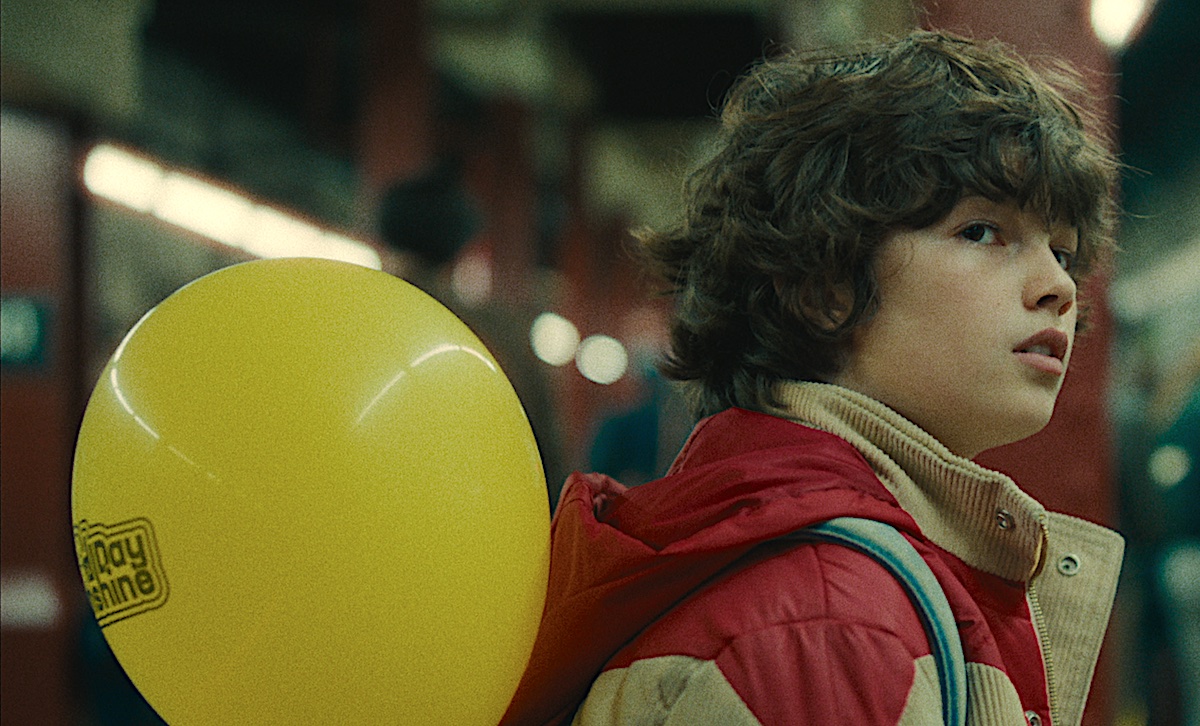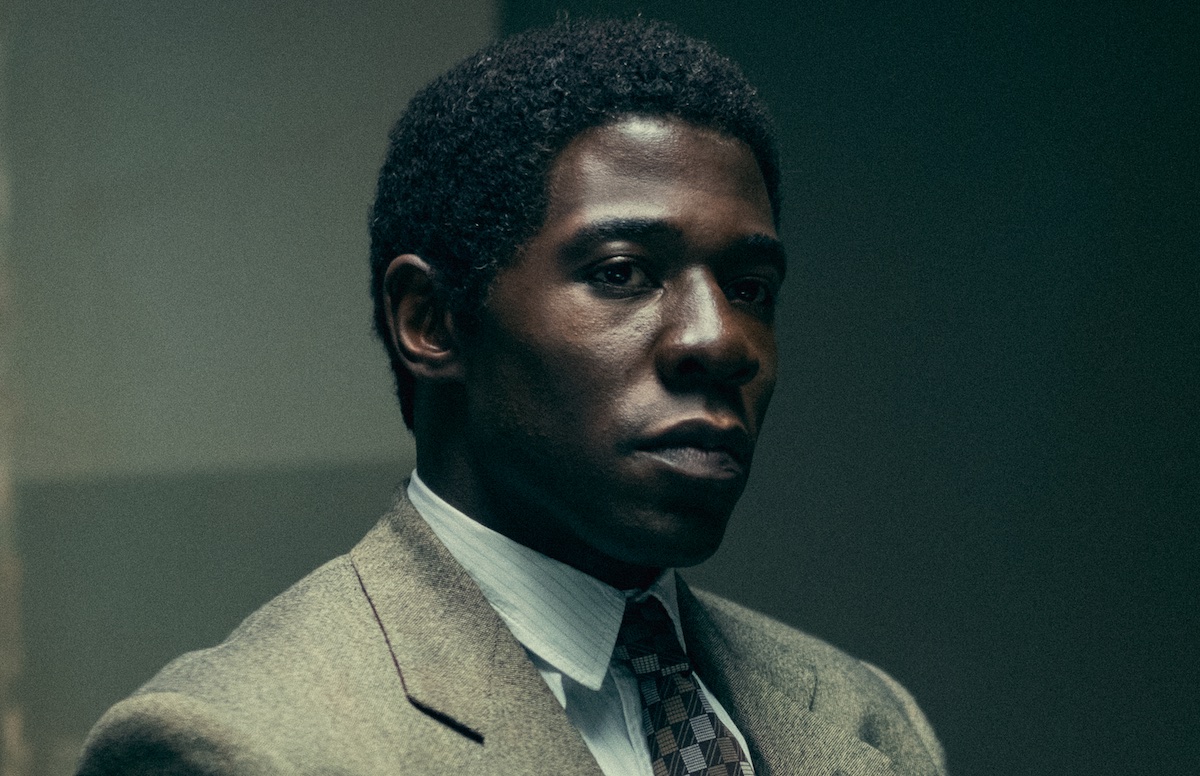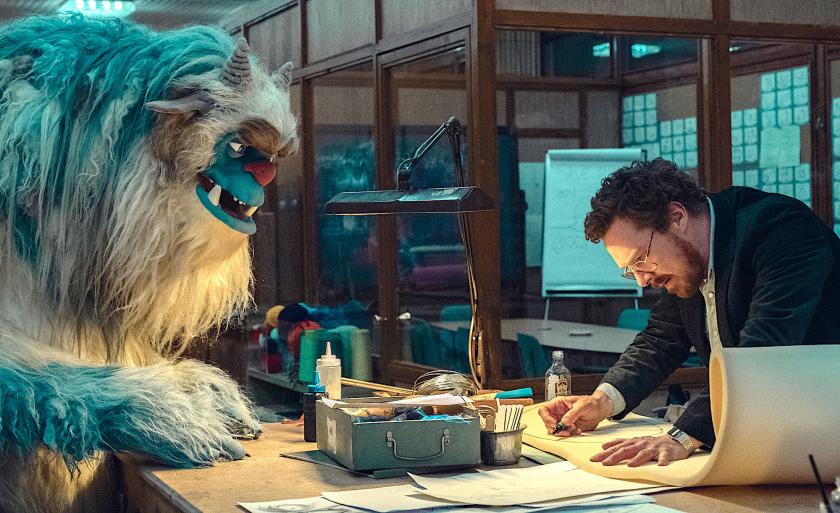New York in the 1980s is the setting for Abi Morgan’s new six-part drama, and it’s a city riddled with squalor, homelessness, racism and rampant crime. The Aids pandemic is also beginning to rear its hideous head. It’s here that the brilliant puppeteer Vincent Anderson (Benedict Cumberbatch) has masterminded his children’s TV puppet show Good Day Sunshine, which bears a striking resemblance to such Jim Henson creations as Sesame Street and The Muppets.
You might think that Vincent would be happy with his life, since he’s hailed as a genius in his field and Good Morning Sunshine isn’t just a TV show, but also a vehicle for education and social awareness.Vincent seems to have his home life sorted too, with wife Cassie (Gabby Hoffman) and their bright and endearing nine-year-old son, Edgar (Ivan Howe, pictured below).
But no. We learn that Vincent has been a long-term sufferer from mental illness, and though it was successfully treated earlier in his life, it has now come roaring back with a vengeance. Far from being a collegial and supportive workmate, Vincent is morphing into an insufferable ogre and tyrant. Constantly swigging from small bottles of what might well be gin, he’s intolerant, aggressive, arrogant and sexist, liable to greet the mildest of comments with a sarcastic tirade of abuse. He’s lucky nobody has shoved him under a passing bus, and you have to wonder why Cumberbatch would take such a thanklessly loathsome role. To practise his new basso profundo American accent, perhaps? Anyway, it eventually starts to dawn on Vincent that he’s going off the rails when he gets sacked from his own show.
 But he has belatedly added to his list of career achievements with the creation of a new puppet character called Eric. It’s a hairy, seven-foot-tall blue monster, and derives from a sketch made by young Edgar, who himself is displaying precocious artistic talent. But when Edgar suddenly vanishes one day when making the short journey to his school, the Anderson household is thrown into panic and turmoil and Vincent finds himself staring into a void of loss and despair.
But he has belatedly added to his list of career achievements with the creation of a new puppet character called Eric. It’s a hairy, seven-foot-tall blue monster, and derives from a sketch made by young Edgar, who himself is displaying precocious artistic talent. But when Edgar suddenly vanishes one day when making the short journey to his school, the Anderson household is thrown into panic and turmoil and Vincent finds himself staring into a void of loss and despair.
The Eric character becomes his lifeline throughout his ordeal, materialising with three-dimensional vividness to Vincent, who frequently baffles people he meets by having angry arguments with, apparently, empty space. Vincent becomes convinced that if he can get Eric on TV, this will magically bring about the return of Edgar.
Morgan’s screenplay frames Vincent’s weird psychodrama amid a checklist of issues which sometimes feel like they’ve been shoehorned in at any cost. To illustrate endemic racism, the search for Edgar is contrasted with the missing black boy Marlon Rochelle, whose mother Cecile (Adepero Oduye) is seething with rage and desperation at the police’s indifference. “He doesn’t count ‘cos he’s black and he’s poor,” she laments.
 A harsh light falls on the corrupt workings of the NYPD, as detective Michael Ledroit (McKinley Belcher III, pictured above) gets on the trail of Edgar’s disappearance but finds he’s uncovering some horrifying truths about his fellow officers. Ledroit’s efforts to bring bent cops to book brings him into conflict with his superior, Captain Cripp (David Denman). The sordid decadence of the city is epitomised by a nightclub called Lux, a hub for all kinds of sexual and narcotic depravity.
A harsh light falls on the corrupt workings of the NYPD, as detective Michael Ledroit (McKinley Belcher III, pictured above) gets on the trail of Edgar’s disappearance but finds he’s uncovering some horrifying truths about his fellow officers. Ledroit’s efforts to bring bent cops to book brings him into conflict with his superior, Captain Cripp (David Denman). The sordid decadence of the city is epitomised by a nightclub called Lux, a hub for all kinds of sexual and narcotic depravity.
Smarmy Deputy Mayor Richard Costello (Jeff Hephner) obligingly steps up as the avatar of political greed and self-aggrandisement, while Vincent’s property-mogul father Robert (John Doman) and aloof mother Anne (Phoebe Nicholls) are the personification of heartless, emotionally crippled capitalism. In contrast, Morgan manages to find some vestiges of virtue in the city’s homeless underclass, as they struggle to eke out a meagre existence in disused subway tunnels and squalid basements.
Eric is a strange beast in more ways than one, by turns fascinating, baffling and ludicrous. The strength-in-depth cast compel you to keep watching, and there’s enough going on to hold your attention, but you’re eventually left thinking “what the hell was that?”















Add comment